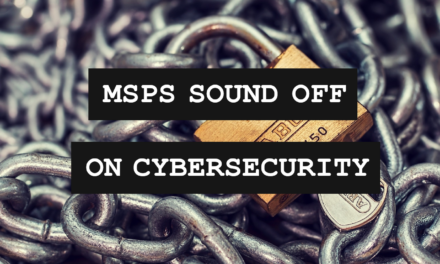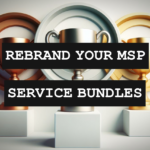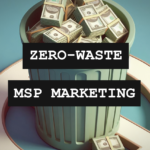How Standardizing Your Selection of Hardware Can Improve Your Business
If your company has yet to standardize hardware and commit to a selection of brands, it is probably likely that this is for technical reasons. Every business client you encounter is different and often requires a custom solution. Many solution designers and engineers look to find the perfect technical fit for any given scenario based on specs and a complete standardization of offerings limits their ability to do so. If this situation sounds familiar, you are not alone. To help you understand why many MSPs are standardizing their hardware despite the technical challenges, here are several operational efficiencies that may benefit you should you choose to do the same.
Margin Control
When you limit your selection of offerings, it is easier to control your margin when selling product. Procuring from only a few vendors allows for static pricing and thus fixed costs. If you are buying and reselling a wide variety of product from ecommerce stores such as Amazon, prices will fluctuate daily. This means that if the item is purchased several days or weeks after it is quoted, your costs may be different and your margin may shrink as a result. Buying a limited variety of goods directly from the vendors or a major supply house will allow you have somewhat static pricing that you can always rely on to yield a fixed margin.
Buying Power
By limiting your selection of products, you will inevitably be purchasing a higher volume from individual vendors. If your vendor has price breaks for volume this means you might end up being able to increase your margin or lower your price to beat out your competition. If they do not publicly offer this type of incentive, it may be worth contacting your rep to negotiate your prices. The more often you buy product from them, the more leverage you will have in the deal. If they see potential in a partnership with you, they will be happy to give you a discount on a one-time or recurring basis.
Vendor Relationship
A good vendor relationship can sometimes be taken for granted, but it is pivotal in growing your business. Getting information, support, and product when you need it is one less thing to worry about amongst the craziness of operating a Managed Services company. Knowing your vendors and suppliers by their first name and having a direct line to reach them is a luxury that you won’t get if you are constantly shopping around for different product. There have been numerous times in our firm’s history where we were in a pinch and needed that extra level of service. Whether it was troubleshooting errors or expediting shipping, our vendors always came through because they valued our business just as we valued theirs.
The Ultimate Guide To Cash Flow For Managed Services
Sponsored by Alternative Payments & Zest
Market Development Funds
One of the major benefits of product standardization that often goes unredeemed is in the awarding of market development funds (MDFs). For those that are not familiar, market development funds are marketing and advertising dollars that vendors will give to re-sellers to help stimulate the sale of product in their market. For example, when our company was re-wrapping a fleet van that was often used for network installations, we reached out to our largest supplier of network hardware to see if they would consider pitching in. They agreed under the condition that we featured their logo somewhere on the vehicle wrap. These type of benefits can only be earned by building long-standing relationships and trust with your vendors.
Inventory Requirements
If you have a standardized product offering it gives even smaller MSPs the ability to keep a light inventory. While it is not always a great idea to have an abundance of cash tied up in physical goods, it can be very beneficial at times of need. If a device fails and becomes “bricked,” your customer cannot afford to wait several days for a replacement. Having product in inventory will allow you swap in new units the same day and get your customer up and running with little down-time. You can also consider self-warrantying the products. This means you charge your customer a monthly or annual fee for unlimited replacement of “like or better” product and you eat the replacement cost if the unit dies. If you choose a reliable suite of products, this can be a very profitable service offering and a win/win situation for you and your customer.
The Ultimate Guide To Cash Flow For Managed Services
Sponsored by Alternative Payments & Zest
Buyer Confidence
When you commit to selling a limited selection of brands, it sends the message to your customers that you have a deep trust and expertise in these products. This can work in your favor in a sales scenario, as your confidence in the quality of the product is likely to instill the same confidence in your buyer. If you try to sell a new product that you admittedly never worked with before, your customer is less likely to trust not only the product but also your handling of it. Enabling the sales process by creating “product bundles” will also allow you to create marketing materials and collateral that better informs the customer and increases their risk tolerance.
Support Training
Something you may not think about initially is that every product you sell has to be supported by your back-end team or help desk. If you are selling a wide variety of products, you will need to train your team members on all of their interfaces, features, and quirks. This takes a significant amount of time and resources that can be avoided by standardization. When your customers have a uniform suite of products, your team can master them much faster. You may also look to hire employees that already have a deep knowledge or certification working with such products as opposed to a generalist with more rounded experience. While your team may not be more versatile, standardization should create a better customer experience, which at the end of the day is really what matters.

SPONSORED BY ZEST

















